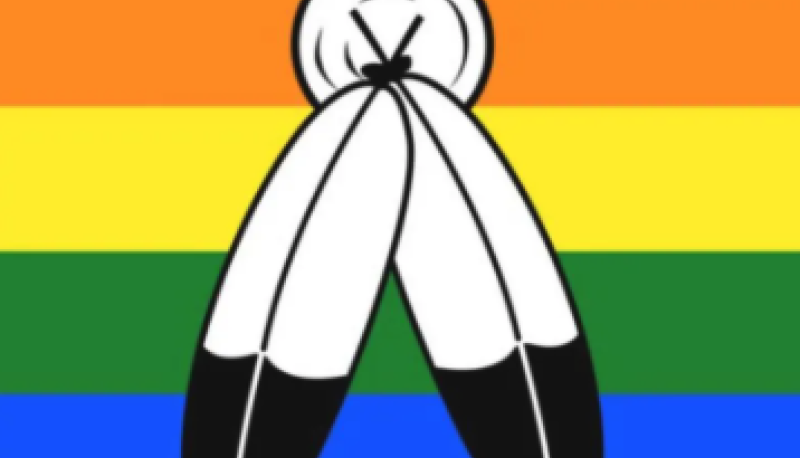
Native American and Indigenous Student Association Discusses Two-Spirit and Queer Native Culture
In honor of Native American Heritage Month, SMC’s Native American and Indigenous Student Association (NAISA) and PRIDE cohosted a panel discussion about Two-Spirit and Native Queer Culture. The panel featured two guest speakers, Nanea Renteria (she/they) and Xico Garza (he/his), to discuss queer and Two-Spirit experiences in Native communities. This discussion was one of many hosted this month by NAISA in recognition of the diverse identities of Native American individuals, encouraging engagement from SMC students who identify as such or are interested in learning more. It was a space where students were able to share experiences, learn more about their peers and communities, and understand the history of erasure behind these identities.
An SMC NAISA student representative shared a similar sentiment following the event. “NAISA is a new organization, even though SMC has stood on Saclan Bay Miwok land since moving here in 1928,” they said. “This is the first opportunity we’ve had to organize events for Native American Heritage Month. Two Spirit & Queer Native Culture was a collaboration between NAISA and PRIDE. This idea came from a desire to focus on highlighting intersectional voices within the Native American and Indigenous communities. In this case, a dialogue about Two-Spirit identity shared the voices of Indigenous peoples’ thinking about pre-colonial gender terms and meanings. Additionally, it became a way to dispel some myths and assumptions about how this designation relates to sexuality. We hope this event, as well as others held, builds coalitions between student organizations, academic departments, and campus committees to create listening, learning, and participatory spaces where Indigenous voices are heard.
“As a Hispanic-Serving Institution,” the representative continued, “SMC has a large student population with Indigenous ancestry that’s not recognized by governmental terminology, in addition to students identified as Native American. These voices and perspectives are valid and valuable in academia. Inclusion of these voices will help SMC toward building students who are ‘disciplined, expansive thinkers capable of exemplary scholarship and meaningful action.’ ”
Nanea Renteria, a Yaqui-descended PhD student at Colombia University, began the discussion with a presentation on queer, Native American history as well as what it means to be Two-Spirit. In her presentation, Renteria described the long history of queer Native Americans and their roles in their respective communities. She discussed the history of queer identities and their namings in different Native tribes across the United States, for there is an important differentiation to be made regarding the presence and roles of queer individuals in varying tribes. Renteria brought up the damage that colonialism has had in erasing queer identities that have existed in different Native American tribes, specifically due to the Mission system, where these identities were denied and almost entirely erased.
Renteria recognizing that Two-Spirit is a contemporary term that does not encapsulate all queer Native American identities. Instead, the term emerged in 1986 from The Two-Spirited People of Manitoba in Winnipeg in Manitoba, Canada. Renteria defined Two-Spirit as “aborigonal people who possess sacred gifts of female and male spirits which exist in harmony,” and added that their role “is recognized in the community as having certain social, cultural, and also spiritual responsibilities.” Two-Spirit people have been communally reclaiming identities that were once the target of colonial erasure.
Xico Garza, who identifies as a Two-Spirit individual, further elaborated on the role and history of Two-Spirit people. He discussed the way reclaiming this identity helped to heal colonial trauma, especially concerning historical erasure. Garza was influenced to reclaim his identity as a way to serve his community. Reading from a speech he delivered at an annual ceremony for Two-Spirit peoples he hosts on the Tule River, he said that “the time is here to create our own two-spirit ceremonies.” He elaborated that “as we create our own narrative to once again claim our spiritual connection to Mother Earth and further understand it...we are here to teach ourselves and others [about] the sanctity of life with our own behavior as good citizens of the world, with our communities and our families.”
NAISA concluded events for Native American Heritage Month with a Song and Drum Night. The association will continue to host informative events throughout the year, with updates available on their Instagram account here.
Read more about SMC’s Intercultural Center here.